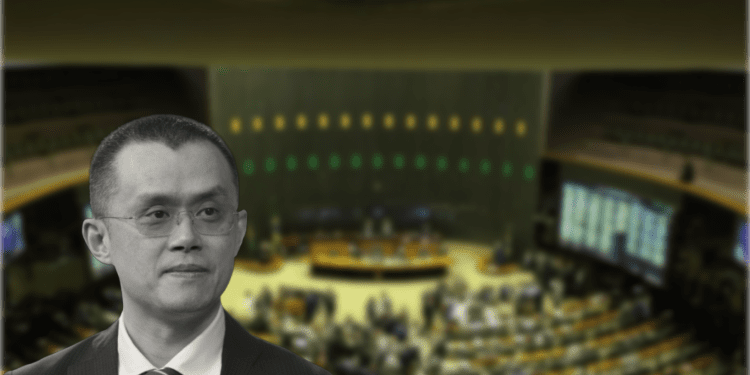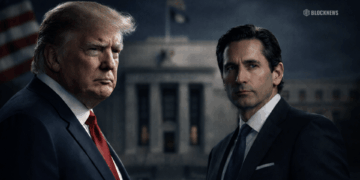- A Brazilian congressional committee suggests charges against Binance CEO Changpeng “CZ” Zhao and three other executives.
- Allegations encompass fraudulent management practices, unauthorized operations, and engaging in securities trading without the necessary approvals.
- Recommendations include investigations into Binance’s operations and sales of derivative products in Brazil.
A Brazilian congressional committee has suggested that law enforcement in the country consider pressing charges against Changpeng “CZ” Zhao, the CEO of Binance.
The committee has also recommended potential indictment for three other executives from Binance. This development follows an investigation into financial pyramid schemes in Brazil.
On October 10th, the committee unveiled a comprehensive 500-page final report. The report accused Zhao, along with local Binance executives Daniel Mangabeira, Guilherme Haddad Nazar, and Thiago Carvalho, of engaging in fraudulent management practices. Allegations included operating without sufficient authorization and offering securities trading without the necessary approvals.
In their report, the committee asserted that Binance and its key figures had established a complex network of legal entities. These entities, they claimed, were under the direct or indirect control of Zhao, lacking clear business purposes and seemingly aimed at evading compliance with the law.
The committee suggested that the Federal Public Ministry initiate an investigation into all of Binance’s operations based in Brazil. The investigation would particularly focus on potential issues related to tax evasion, money laundering, and financing of organized crime and terrorism.
Additionally, the committee proposed that Brazil’s Securities and Exchange Commission (CVM) investigate Binance’s sale of derivative products. They claimed that Binance had continued to offer these products despite being advised to cease such trading, constituting a “repeated violation” of market regulations.
It is important to note that the committee’s recommendations are not legally binding. They serve as suggestions to local authorities, allowing police and other regulatory bodies to determine whether to proceed with further action.
Undoubtedly, the cryptocurrency space has been under increased scrutiny, with regulatory efforts aiming to tighten control over major exchanges like Binance. The latest recommendations by the Brazilian congressional committee further underscore this trend.
Critics argue that these persistent endeavors could be driven by influential establishments seeking to assert dominion over the cryptocurrency landscape. While this remains speculative, past occurrences provide substantial evidence supporting such a possibility.














